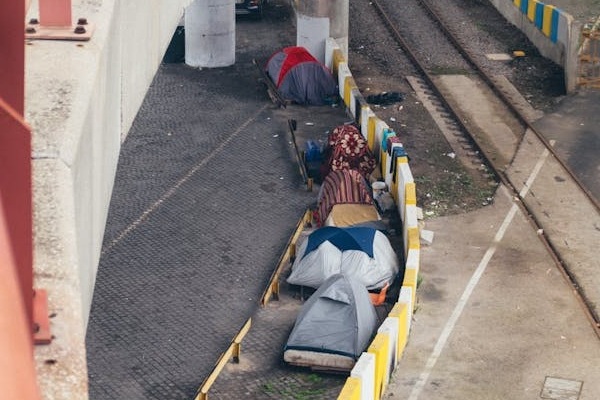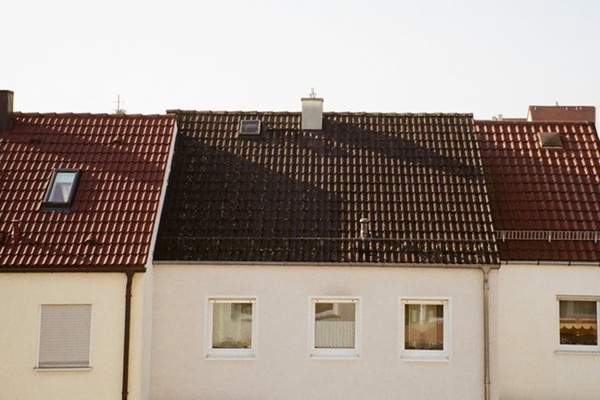We want affordable, well-maintained houses and secure tenancies.
Houses in a housing commons are owned by the community in perpetuity, ensuring affordability and security of tenure.
Why This Matters
- Rent and home prices keep rising faster than wages, making it harder for people to afford a stable place to live.
- Properties are treated as investments, driving prices even higher.
- There aren’t enough public or cooperative housing options, leaving many people at risk of losing their homes or living in unstable conditions.
- At the same time, new developments focus on making profits over community needs.
This system deepens inequality and makes housing insecurity worse for millions.


Our Solution
- A housing commons removes homes from the market forever.
- Instead of relying on bank loans, properties are purchased without debt, redirecting interest payments away from the banks to community investors and tenants.
- Over time, rents reduce to a minimal maintenance level as investors are repaid, making housing permanently affordable.
- This model ensures stable, affordable homes for future generations.
How it works
By removing housing from speculation and eliminating debt-driven costs, we make stable, secure homes a reality. BUT HOW DOES IT ACTUALLY WORK? Explore the sections below to see how we fund, own, and manage homes differently—creating a fairer system that puts people before profit.
What is a Housing Commons?
A housing commons keeps homes in the hands of the community—permanently affordable, secure, and free from speculation. Instead of landlords or banks controlling homes, a housing commons allows the community to own and manage them collectively. Unlike traditional housing that gets more expensive over time, a housing commons ensures homes stay affordable for generations.
How is it different from regular homeownership or renting?
- Unlike private homeownership, no one can sell the homes for profit.
- Unlike renting, residents have security—they won’t be evicted for profit-driven reasons.
- As investments are repaid, rent drops gradually to a low maintenance fee.
How do we buy the homes?
Instead of a mortgage, we raise funds from community investors by selling future rent vouchers.
- The vouchers are inflation-proof savings tool.
- What would have been interest payments to the banking sector is shared between investors and tenants.
- They are sold at a discount to investors.
- They are bought by tenants in exchange for accommodation.
- The community investors get around 5% profit. Tenants get a small reduction in rent.
What happens to rent over time?
Rent doesn’t keep increasing—it gets lower.
- Rent will remain slightly cheaper than the market rate for some years. This covers repaying community investors and maintenance costs.
- As more houses are put into Housing Commons, the economies of scale will enable rent rebates which will reduce the rent more.
- Like paying off a mortgage, as investors are repaid, rent reduces to only cover maintenance, making housing permanently affordable.
Can people sell their homes?
No, because homes are meant to stay in the commons forever.
- No one can flip a home for profit, preventing speculation.
- If someone moves out, the next resident pays the same fair price, keeping housing affordable.
What’s in it for the investors?
Small-scale investors can put their money in places they care about and help create affordable housing while earning a reasonable return.
- Instead of banks profiting, investors get repaid over time with a fair return.
- It acts as a pension alternative that’s safe, local and ethical.
- Once repaid, the home stays affordable forever, benefiting future residents.
How does this keep communities strong?
A housing commons prevents displacement and keeps people in their neighborhoods.
- No more evictions due to rising rents or landlords selling properties.
- Residents have a say over their housing and decisions are made collectively.
- It circulates the money in communities and stops wealth extraction.
- Overtime, houses in the Commons will become the most affordable and well maintained houses in the communities.
